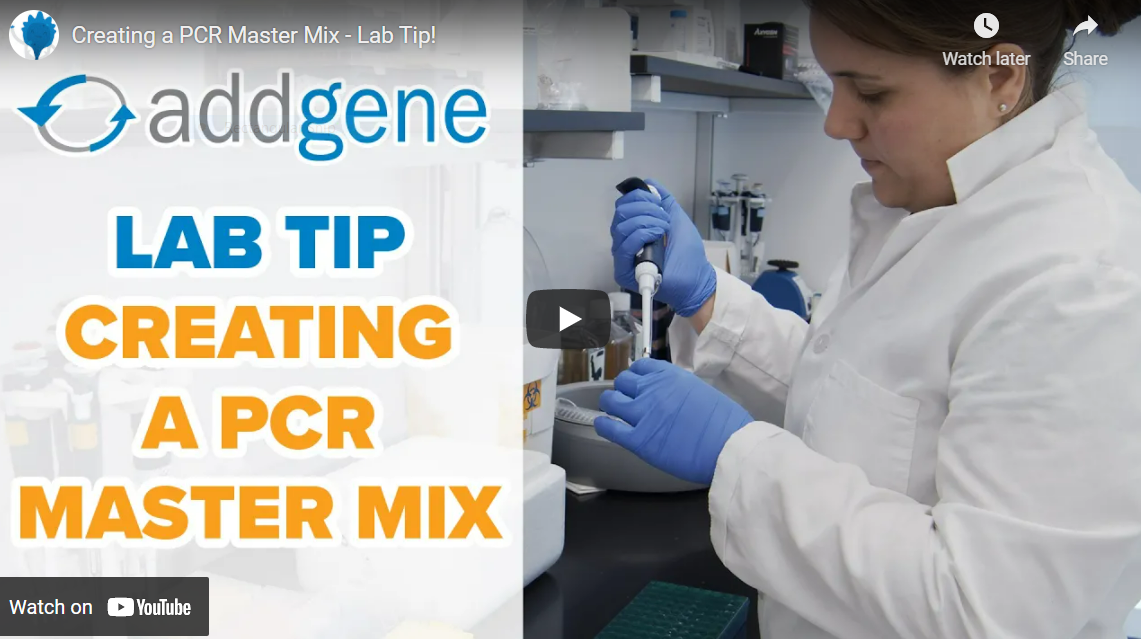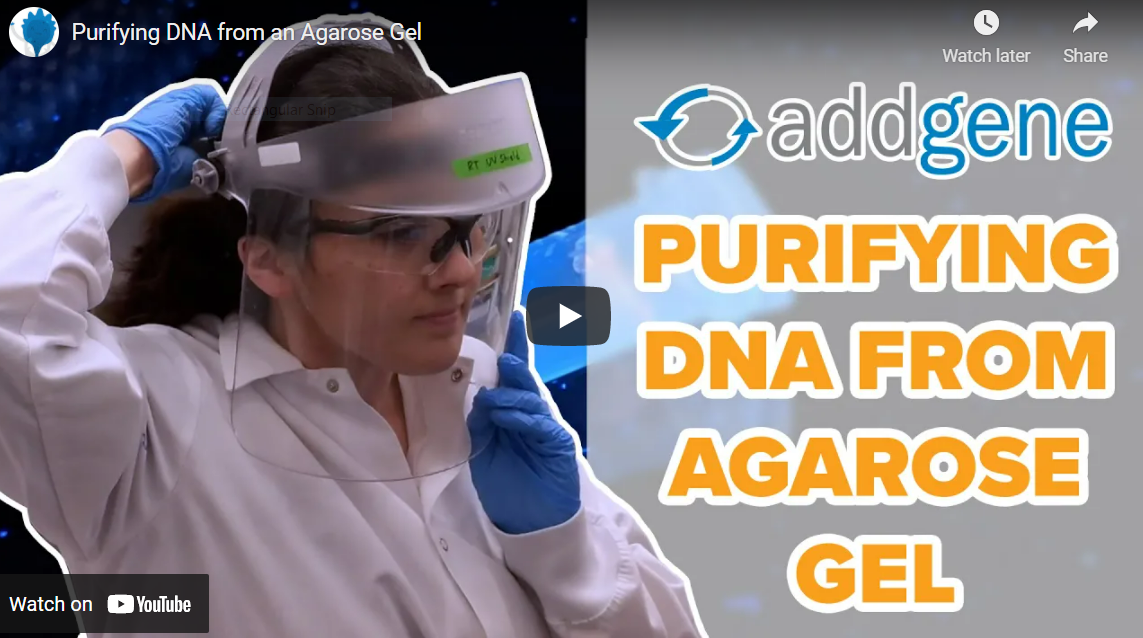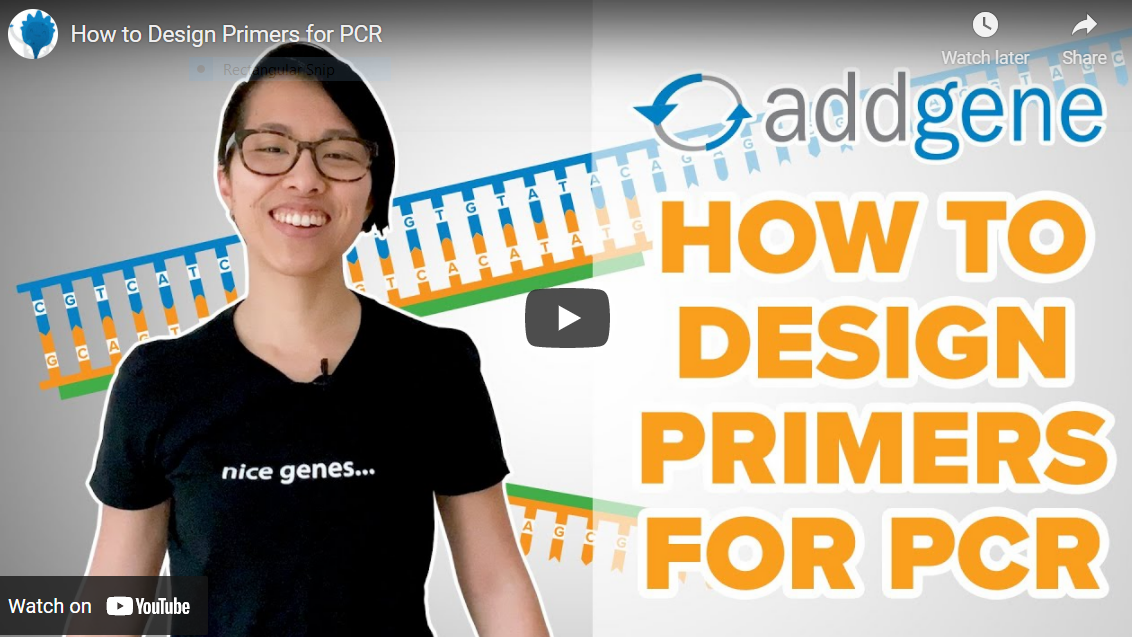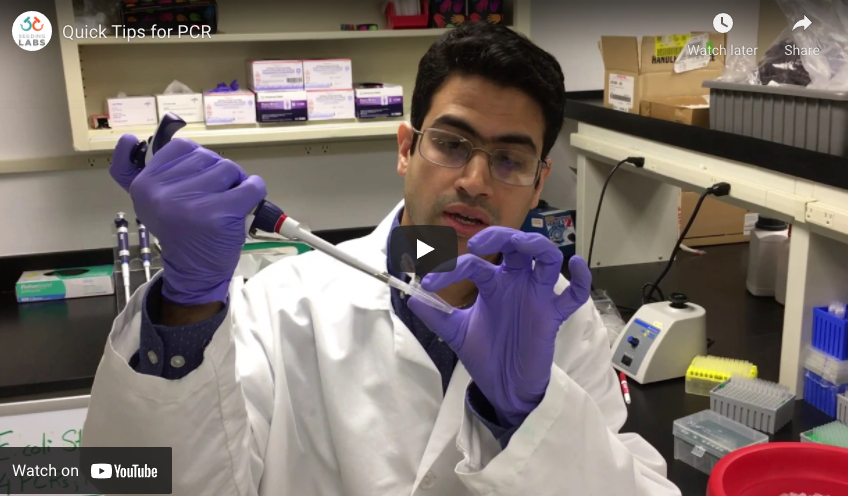Polymerase Chain Reaction (PCR) Protocol
Do you have a short region of a DNA molecule that needs to be copied? Alyssa, a QC scientist at Addgene, walks you through the PCR process.A standard Polymerase Chain Reaction (PCR) is an in vitro method that allows a single, short region of a DNA molecule (a single gene perhaps) to be copied multiple times by Taq Polymerase. From a single copy of DNA (the template), a researcher can create thousands of identical copies using a simple set of reagents and a basic heating and cooling (denaturing and annealing) cycle.




